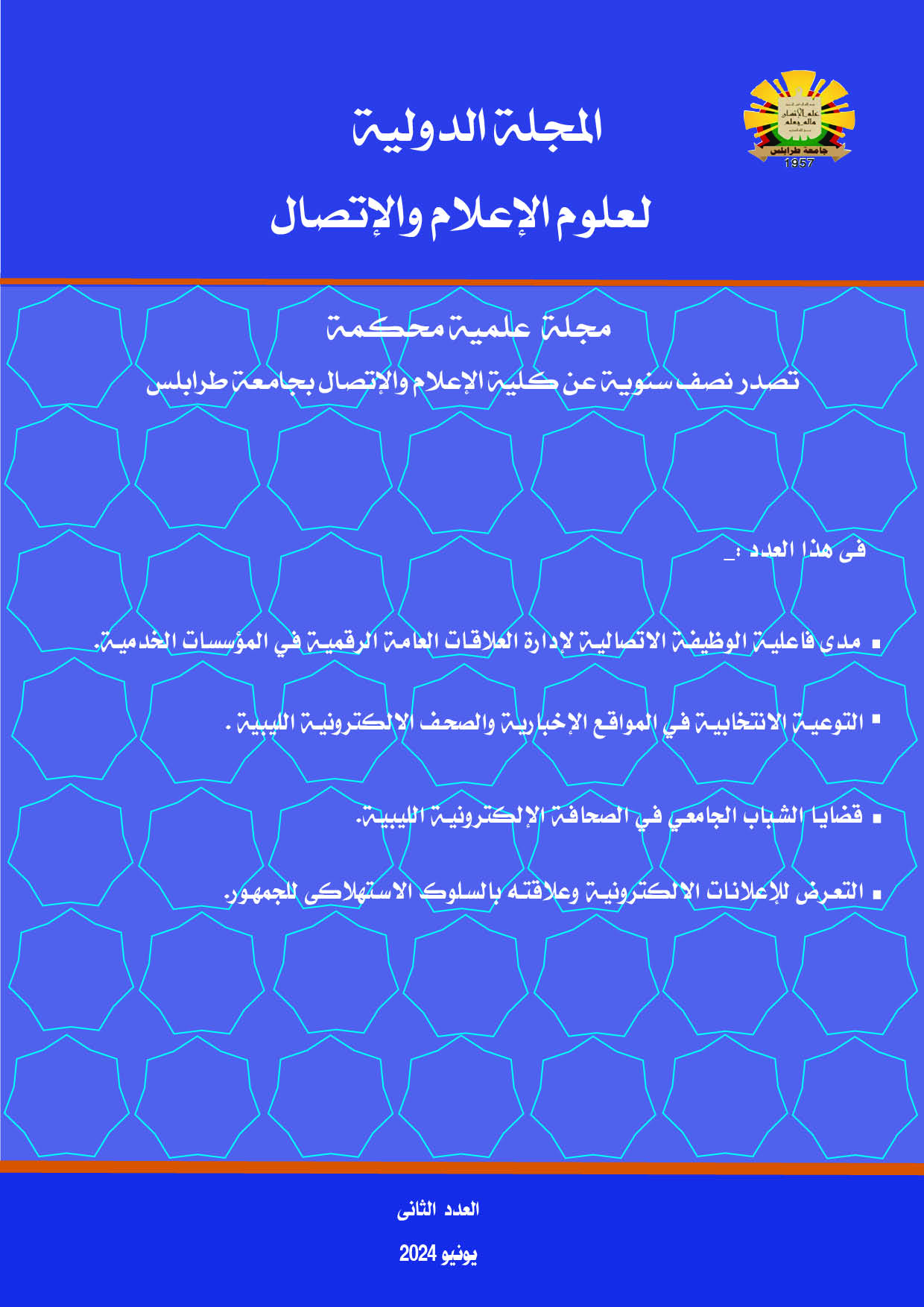استخدامات الشباب الجامعي لمواقع التواصل الاجتماعي والاشباعات المتحققة منها في ليبيا
الملخص
ملخص البحث:
هدفَ هذا البحث إلى معرفة استخدامات الشباب الجامعي لمواقع التواصل الاجتماعي قي ليبيا (التيك توك انموذجاً)، ومن أجل تحقيق هذا الهدف اتبع البحث منهج الوصفي بتوزيع أداة جمع البيانات الاستمارة الاستبيان باليد على كامل مجتمع البحث بأسلوب المسحي للطلبة كلية الاعلام وتوصلت إلى النتائج الاتية وهي: أن( التيك توك) له تاثير على الطلبة من خلال البحث عن المعلومات واكتساب المعارف للرفع من كفاءتهم في التحصيل المعرفي ،كما بين البحث ان (التيك توك) يشبع الحاجات المعرفية للطلبة ، وكانت من أهم نتائج البحث هو أن تطبيق( التيك توك) ان (التيك توك) يشبع الحاجات المعرفية، والرغبات الشخصية للطلبة، بحكم أنّ الطلبة لديهم الرغبة في البحث والتعرّف عمّا يدور من حولهم من تغيّرات، خصوصا وهم في بداية حياتهم الجامعية فهم بحاجة إلى تنمية خبراتهم المعرفية وتطويرها ،كما توصلت النتائج الي إنّ (التيك توك) يؤثر بدرجة متوسط في إشباعات الطلبة من الموضوعات الترفيهية،.
Research Summary:
The aim of this research is to find out University youth’s uses of social networking sites in Libya (Tik Tok as a model), and in order to achieve this goal, the research followed a descriptive approach by distributing the data collection tool, the questionnaire form, by hand to the entire research community in a survey style for students in the Faculty of Mass Communication, and reached the following results, which are: that (Tik Tok) has It has an impact on students through searching for information and acquiring knowledge to increase their efficiency in cognitive achievement. The research also showed that Tik Tok satisfies the cognitive needs of students. One of the most important results of the research was that the Tik Tok application satisfies cognitive needs and personal desires. For students, since students have the desire to research and learn about the changes going on around them, especially when they are at the beginning of their university life, they need to develop and advance their cognitive experiences. The results also showed that (talk) has a moderate effect on students’ satisfaction with entertainment topics. .

